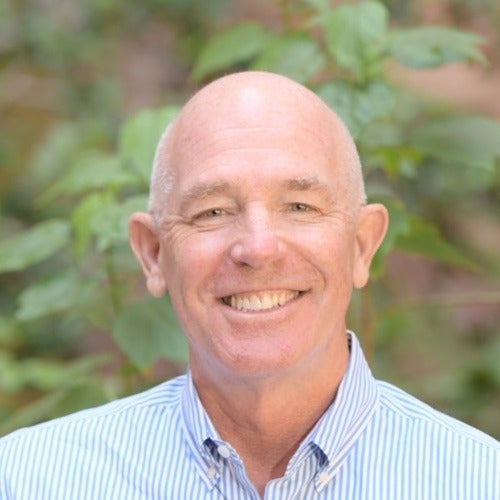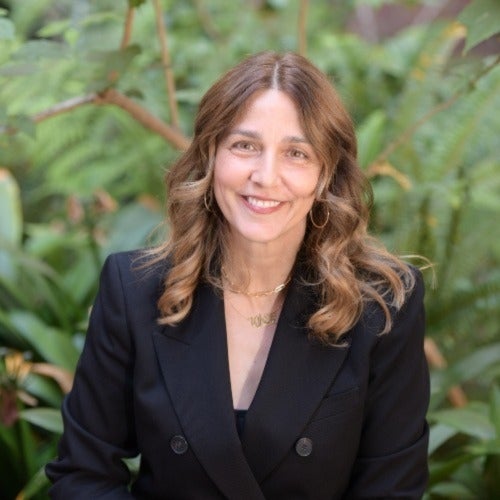U.S. CDC funding awarded to UCLA Fielding School of Public Health program that provides exposure, opportunities for young people committed to health equity
The U.S. Centers for Disease Control and Prevention have awarded $3 million to the UCLA Fielding School to strengthen the public health workforce
A UCLA Fielding School of Public Health program that aims to strengthen the public health workforce by introducing a diverse pool of undergraduates to the field through an eight-week residential summer program has received more than $3 million in funding over the next five years from the U.S. Centers for Disease Control and Prevention’s Office of Minority Health and Health Equity. The Fielding School’s UCLA Public Health Scholars Training Program was one of seven such programs across the country selected to collaborate as part of CDC’s newly established John R. Lewis Undergraduate Public Health Scholars Program, named after the late U.S. congressman and civil rights leader.
Since accepting its first cohort in 2018, the UCLA Public Health Scholars Training Program has inspired and supported scores of young people to pursue graduate school and careers in public health. The program leverages UCLA Fielding’s network of community partners to provide hands-on public health experiences focused on equity, along with educational workshops, professional development, and mentorship.
Dr. Michael Prelip, professor in UCLA Fielding’s Department of Community Health Sciences and principal investigator of the UCLA Public Health Scholars Training Program, noted that a strong public health workforce is essential to national efforts to improve population health and promote health equity. The COVID-19 pandemic has highlighted glaring racial and ethnic disparities in health outcomes, he noted, underscoring the urgency of increasing the diversity of the public health workforce as a vehicle to raise the quality of public health services and address inequities that affect health — including access to quality education, nutritious food, safe housing, reliable transportation, and clean air and water.
“Eliminating opportunity disparities by engaging underserved and underrepresented students in the possibilities of rewarding, impactful public health careers is critical in developing a public health workforce that is more representative of the diverse U.S. population,” Prelip said. “We are excited to continue a program that provides rich hands-on and teaching experiences for young people as they are thinking about career options, as well as nurturing their growth and empowering them to take an active role in carving out their career path, which contributes to future job satisfaction.”
The UCLA Public Health Scholars Training Program is open to students who have completed at least two years of undergraduate education and are enrolled in a four-year institution, or who recently completed college and have not yet enrolled in a graduate program. Through recruitment strategies focused on underserved and underrepresented communities across the country, the program draws a large and highly diverse pool of applicants — approximately 1,200 each year. Among the program’s first four cohorts, 95% identified as ethnic or racial minorities, 75% as first-generation college students, and more than one-third as members of sexual and gender minority groups.
For the eight-week summer program, scholars are housed on the UCLA campus at no cost. They are placed in community-based organizations, health systems, and government agencies throughout Los Angeles, where they contribute three days a week to efforts focused on health equity, under the guidance of professional mentors. Scholars also spend two days a week attending workshops and other structured educational opportunities designed to foster a passion for public health, develop leadership and professional skills, and cultivate mentoring relationships with public health professionals, graduate students, and faculty. In addition, the UCLA scholars participate with students from other programs across the nation in a CDC-hosted research poster showcase.
The UCLA Public Health Scholars Training Program is part of a larger UCLA Fielding effort to build a robust pipeline into the public health profession for young people in historically marginalized communities by providing early exposure and helping them to forge connections that can lay the groundwork for their career success. “Through these programs, we have built a robust network of community partners and professional, graduate student, and faculty mentors, all of whom provide information, support, and networking opportunities for the scholars while they’re in the program and beyond,” said Lindsay Rice, director for the UCLA Public Health Scholars Training Program and UCLA Fielding’s first director of pathway programs. “For these scholars to receive support and guidance from successful individuals who look like and come from similar communities as they do is invaluable.”
Rice noted that evaluations conducted after each of the program’s first four cohorts have found a significant increase in the scholars’ awareness of public health careers, as well as improved academic and professional skills. Among the program’s participants, 38% have earned or are currently pursuing a graduate degree in public health, and another 13% are attending or have completed a non-public health graduate program. Eighty-seven percent expressed an intention to work in public health.
Elaine Owusu, one of 40 students selected for the first UCLA Public Health Scholars Training Program cohort in 2018, used her experience as a springboard to enroll in UCLA Fielding’s Master of Public Health (MPH) program, which she completed in 2021. Owusu is now a public health specialist with the COVID-19 Virtual Training Academy, a collaborative effort involving the California Department of Health Services, UCLA, and UC San Francisco that has trained thousands of individuals across the state in public health strategies designed to mitigate the spread of COVID-19.
“Through the scholars program, I not only had the opportunity to explore different areas of public health, but also got real professional experience interning at a Federally Qualified Health Center,” Owusu said. “I gained an understanding of how health disparities develop and persist in our most vulnerable communities, and was inspired to return to UCLA Fielding for my MPH in Community Health Sciences. The program jump-started my trajectory into a public health career.”

